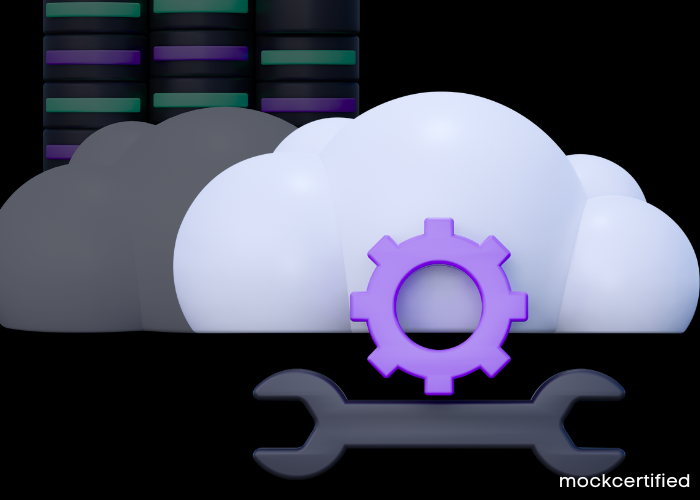Blog
12 useful DevOps Tools for Automation you need in 2023
Sara Ali
Jun 15, 2023
5 min read

Table of Contents
Introduction
DevOps, which combines the words “development” and “operations,” is a software development methodology that stresses cooperation, communication, and automation.
Automation is a key principle of DevOps, enabling teams to automate manual tasks, reduce errors, and foster continuous integration and delivery.
Let’s explore some essential DevOps tools for automation.
Benefits of Automation in DevOps

Automation has various advantages in the DevOps process, some of them are:
Faster Time-to-Market: By automating the build, test, and deployment processes, software releases can be delivered to users faster, enabling organizations to stay ahead in the competitive market.
Consistency: Automation ensures that processes are executed consistently, eliminating variations caused by human error.
Improved Quality: Automated testing and deployment processes help identify and fix issues early in the development cycle, resulting in higher-quality software.
Collaboration: Automation fosters collaboration between development and operations teams by providing a unified platform for sharing code, configurations, and deployment artifacts.
If DevOps is your forte and you wish to excel in this career, take a free exam now and put your knowledge to the test.
Version Control Systems
Git
One of the popular DevOps tools for automation is Git. Git is a widely used distributed version control system that enables teams to track changes in source code and collaborate effectively.
It allows developers to work on different branches, merge changes, and revert to previous versions when needed.
Subversion (SVN)
Another DevOps tools for automation is Subversion. It is centralized version control system that provides a structured repository for source code.
It offers features like versioning, branching, and merging, making it suitable for teams preferring a centralized approach.
While it lacks some of Git’s more complex capabilities, it is nevertheless a popular option for enterprises that want a centralized approach to version management.
Continuous Integration/Continuous Deployment (CI/CD)
Jenkins
Jenkins is an open-source automation server that facilitates the continuous integration and continuous deployment of software.
It has a large ecosystem of plugins and connectors that allow it to be extremely flexible and adaptable to diverse development methodologies.
CircleCI
CircleCI is a cloud-based CI/CD platform that simplifies the automation of build, test, and deployment workflows.
It provides a straightforward configuration setup and supports multiple programming languages and environments.
Configuration Management
Ansible
Ansible is an open-source automation tool that simplifies configuration management and application deployment.
It employs a declarative language and an agentless design, making it simple to understand and implement.
Puppet
Puppet is a widely adopted configuration management tool that helps automate the management of infrastructure and applications.
It provides a declarative language, Puppet DSL, which allows users to define the desired state of their systems.
Puppet agents are installed on target machines to ensure that they comply with the defined configurations, making it easy to enforce consistency and automate repetitive tasks.
Infrastructure as Code (IaC)

Terraform
One of the powerful DevOps tools for automation is Terraform. It helps in provisioning and managing infrastructure resources. It uses a declarative language to define infrastructure configurations as code.
DevOps teams may use Terraform to automate the provisioning of cloud resources like virtual machines, networks, and storage across many cloud providers.
This approach ensures consistent and reproducible infrastructure deployments.
CloudFormation
CloudFormation, provided by AWS, is a service that allows users to define infrastructure resources using YAML or JSON templates.
These templates are version-controlled, easily reusable, and can be deployed and managed in an automated manner.
CloudFormation simplifies the process of provisioning and managing AWS resources, enabling efficient infrastructure as code practices.
Containerization and Orchestration
Docker
Docker has revolutionized the way applications are deployed by introducing lightweight and portable containers.
Containers encapsulate applications and their dependencies, allowing them to run consistently across different environments.
Docker also provides tools for building and managing container images, making it easier to package and distribute applications.
It integrates well with other DevOps tools, enabling seamless integration and deployment pipelines.
Kubernetes
Kubernetes is an open-source container orchestration platform which automates the deployment, scaling, and management of containerized applications.
It provides a robust and scalable infrastructure for running containers in production environments.
Kubernetes offers features like service discovery, load balancing, and automated rollouts/rollbacks, ensuring high availability and resilience. It has become the de facto standard for container orchestration in the industry.
Monitoring and Alerting
Prometheus
Prometheus is an open-source monitoring and alerting toolkit built for dynamic environments like containerized applications.
It collects metrics from various sources, stores them, and provides a powerful querying language to analyze and visualize the data.
Prometheus allows DevOps teams to gain valuable insights into their applications’ performance, troubleshoot issues, and set up proactive alerting for timely response to incidents.
Grafana
Grafana is a popular open-source platform for visualizing and analyzing metrics.
It integrates seamlessly with Prometheus and other monitoring systems, providing rich and interactive dashboards to monitor the health and performance of applications and infrastructure.
Grafana allows users to create custom visualizations and alerts, enabling effective monitoring and troubleshooting.
Conclusion

Automation is the backbone of successful DevOps practices, enabling organizations to achieve faster software delivery, improved collaboration, and enhanced efficiency.
In this article, we explored a range of essential DevOps tools for automation, each serving a specific purpose in streamlining processes and optimizing workflows.
From version control systems like Git and SVN, which facilitate code collaboration and change management, to CI/CD tools like Jenkins and CircleCI, which automate the build, test, and deployment processes, these tools empower DevOps teams to achieve continuous integration and delivery.
Ansible and Puppet are configuration management technologies that enable automate infrastructure provisioning and configuration, assuring consistency and scalability across environments.
Infrastructure as Code tools like Terraform and CloudFormation enable teams to define and manage infrastructure resources using code, bringing automation and reproducibility to infrastructure deployments.
Containerization and orchestration solutions like Docker and Kubernetes make it easier to deploy and manage applications in containerized environments, allowing for scalability and mobility.
Monitoring and alerting tools like Prometheus and Grafana provide valuable insights into the performance and health of applications and infrastructure, facilitating proactive monitoring and timely incident response.
Incorporating these DevOps tools for automation into your processes can result in shorter time-to-market, more productivity, and higher software quality.
By reducing manual effort, minimizing errors, and fostering collaboration between development and operations teams, organizations can effectively meet the demands of modern software delivery.
Share this post
Popular
Get the most out of the hot topics with our favorite blogs!